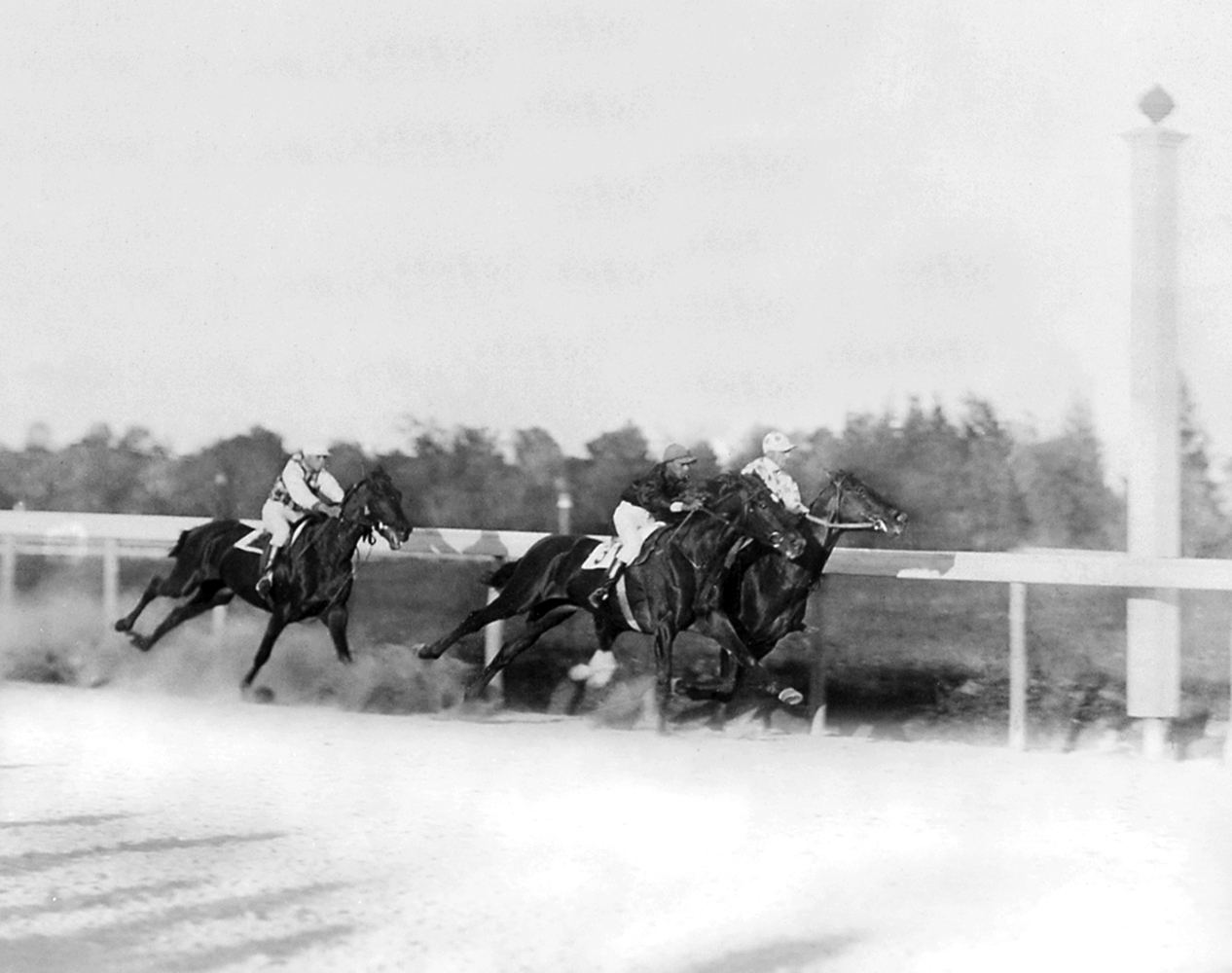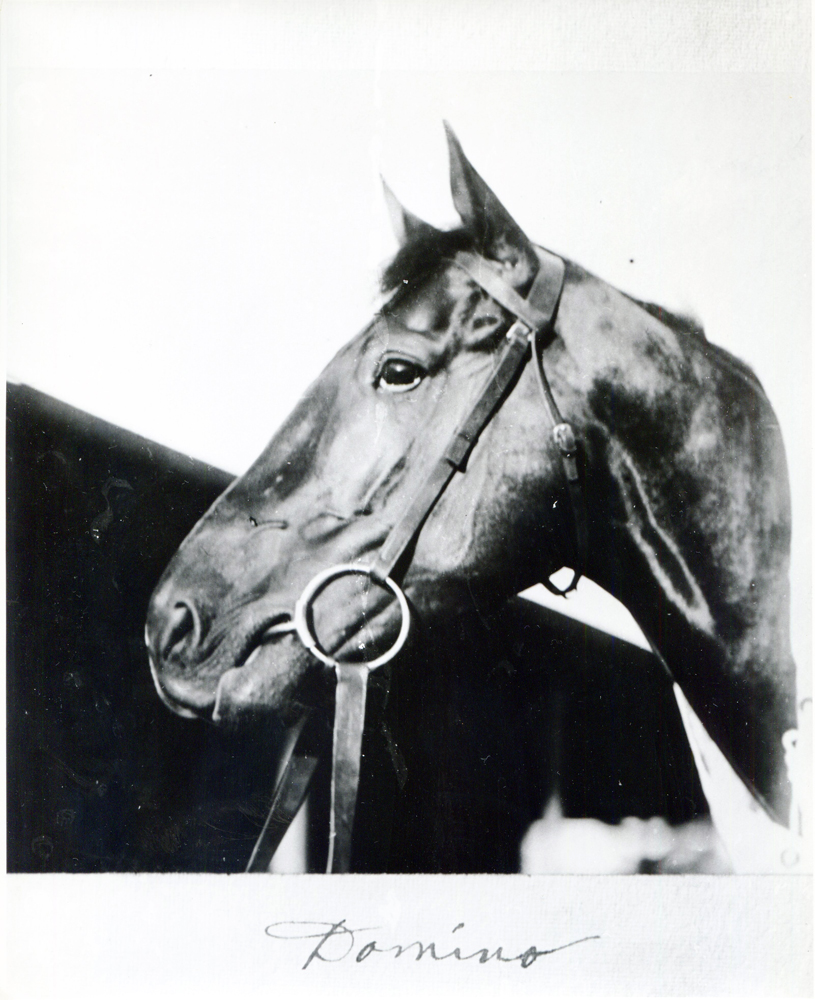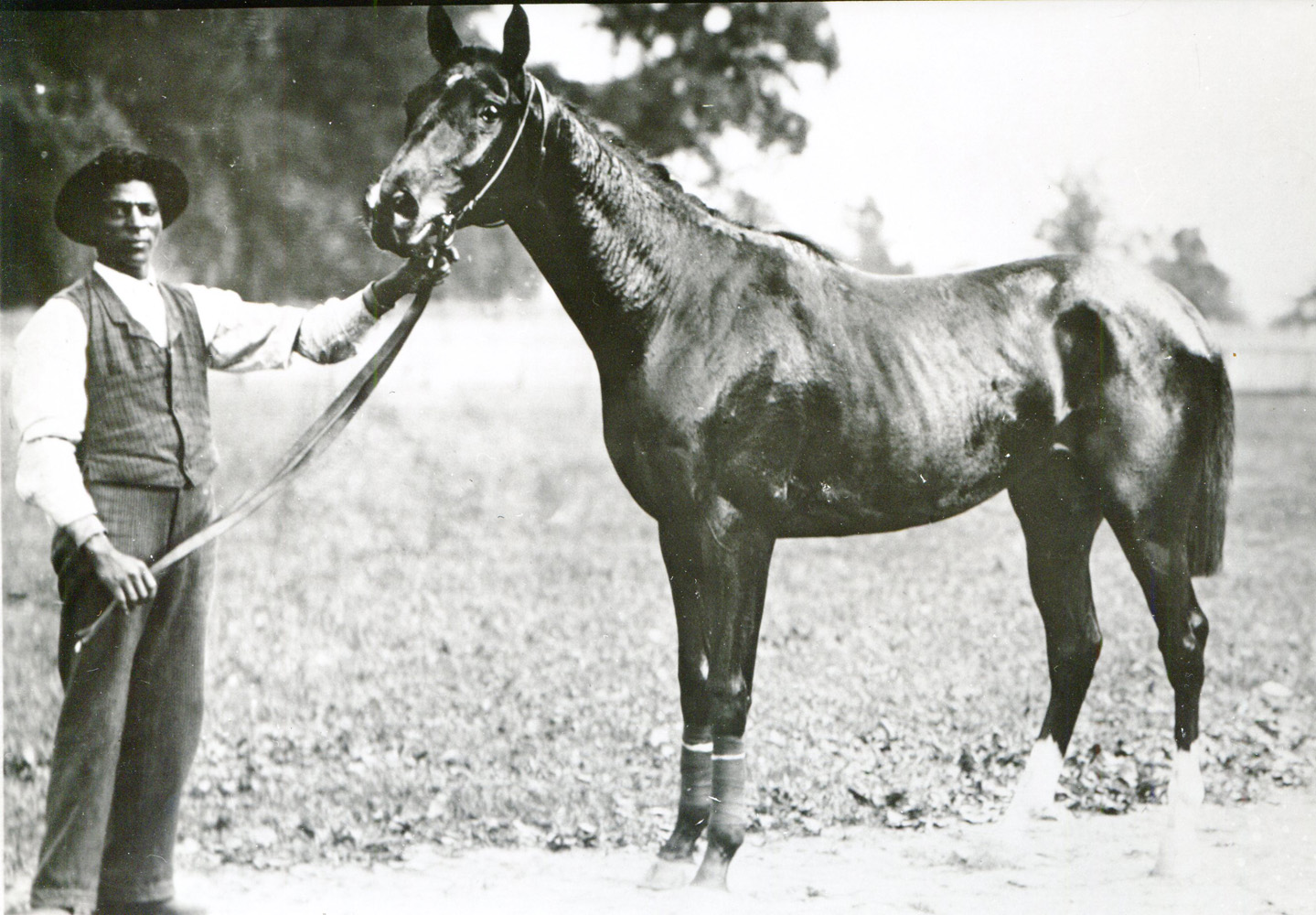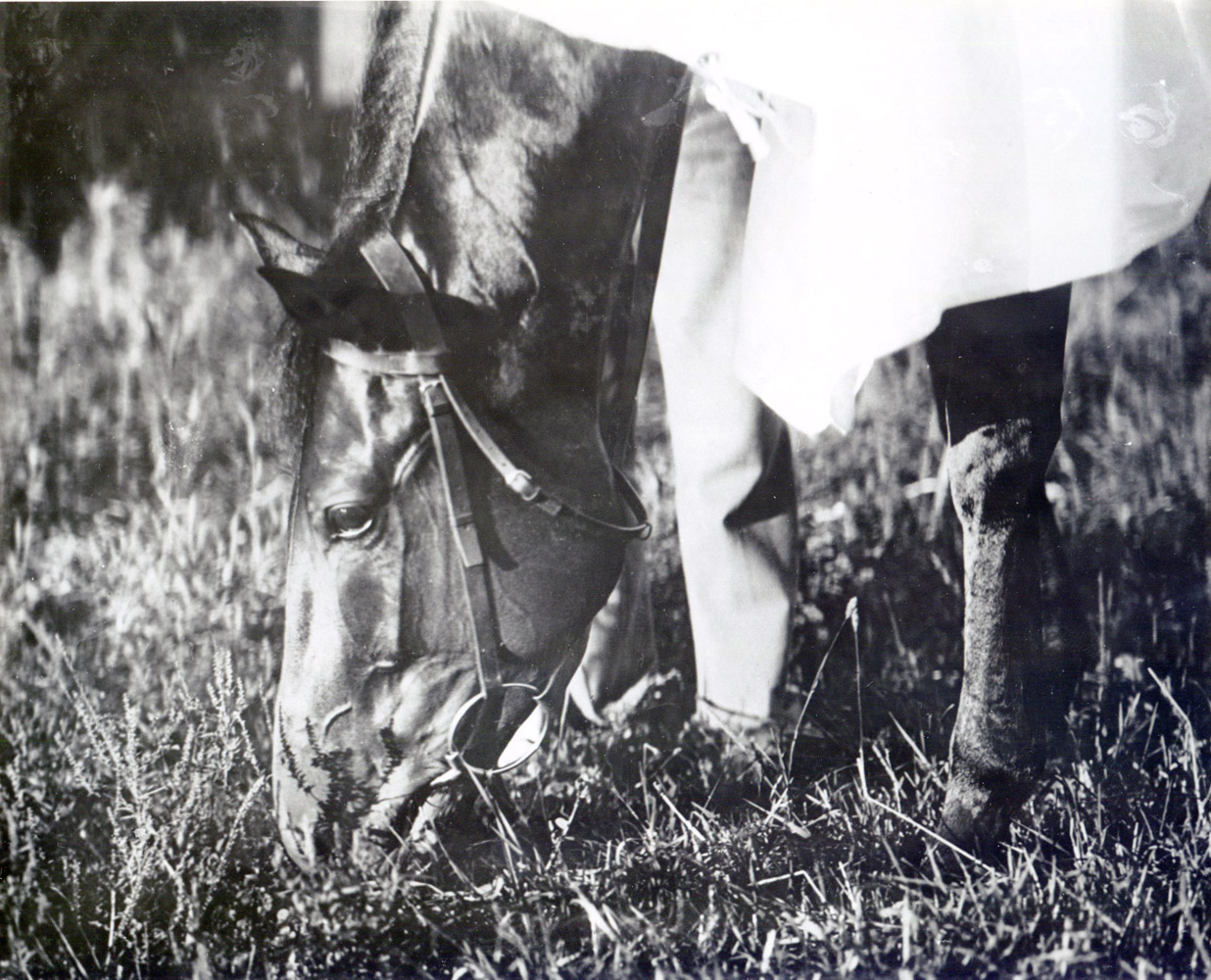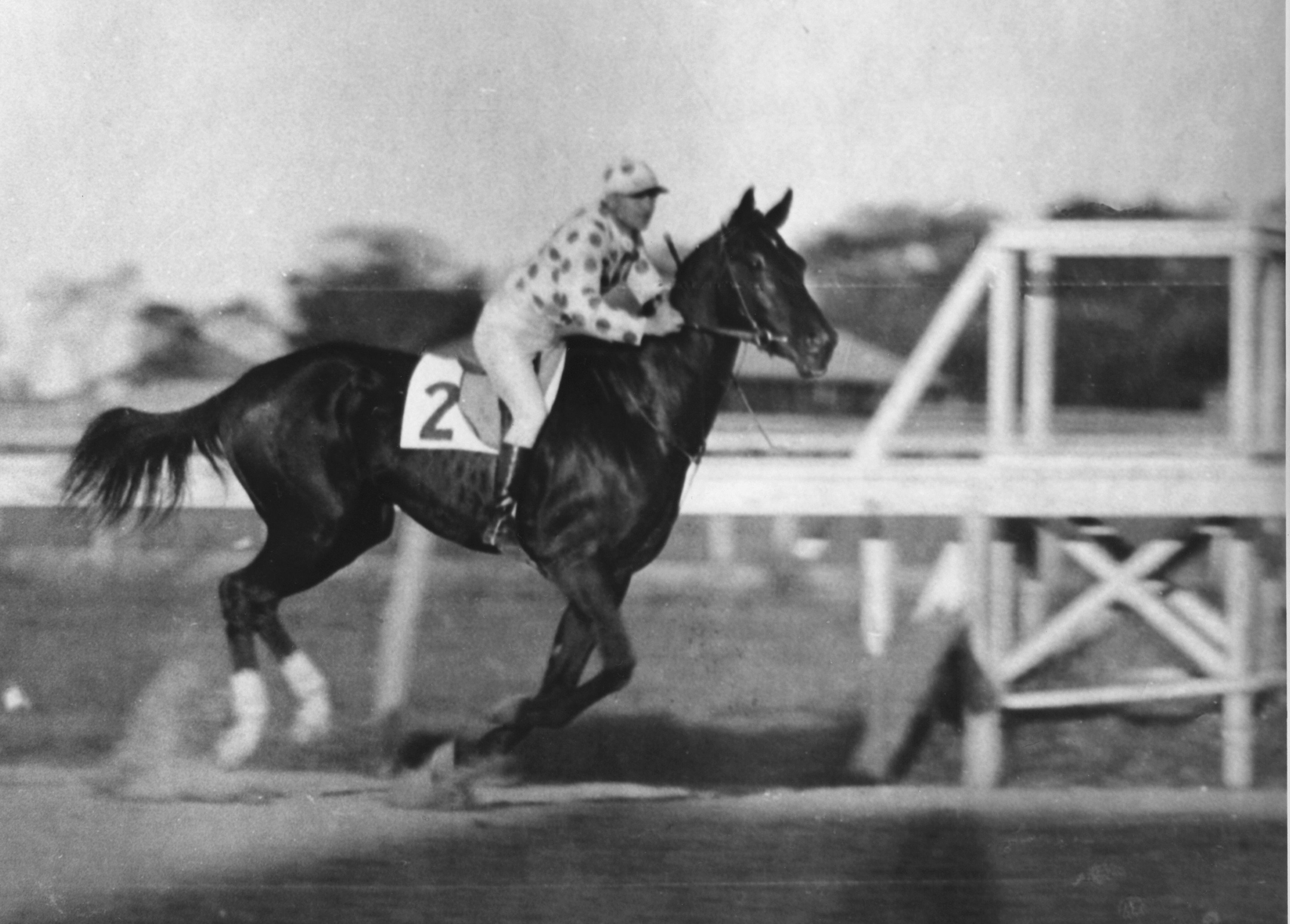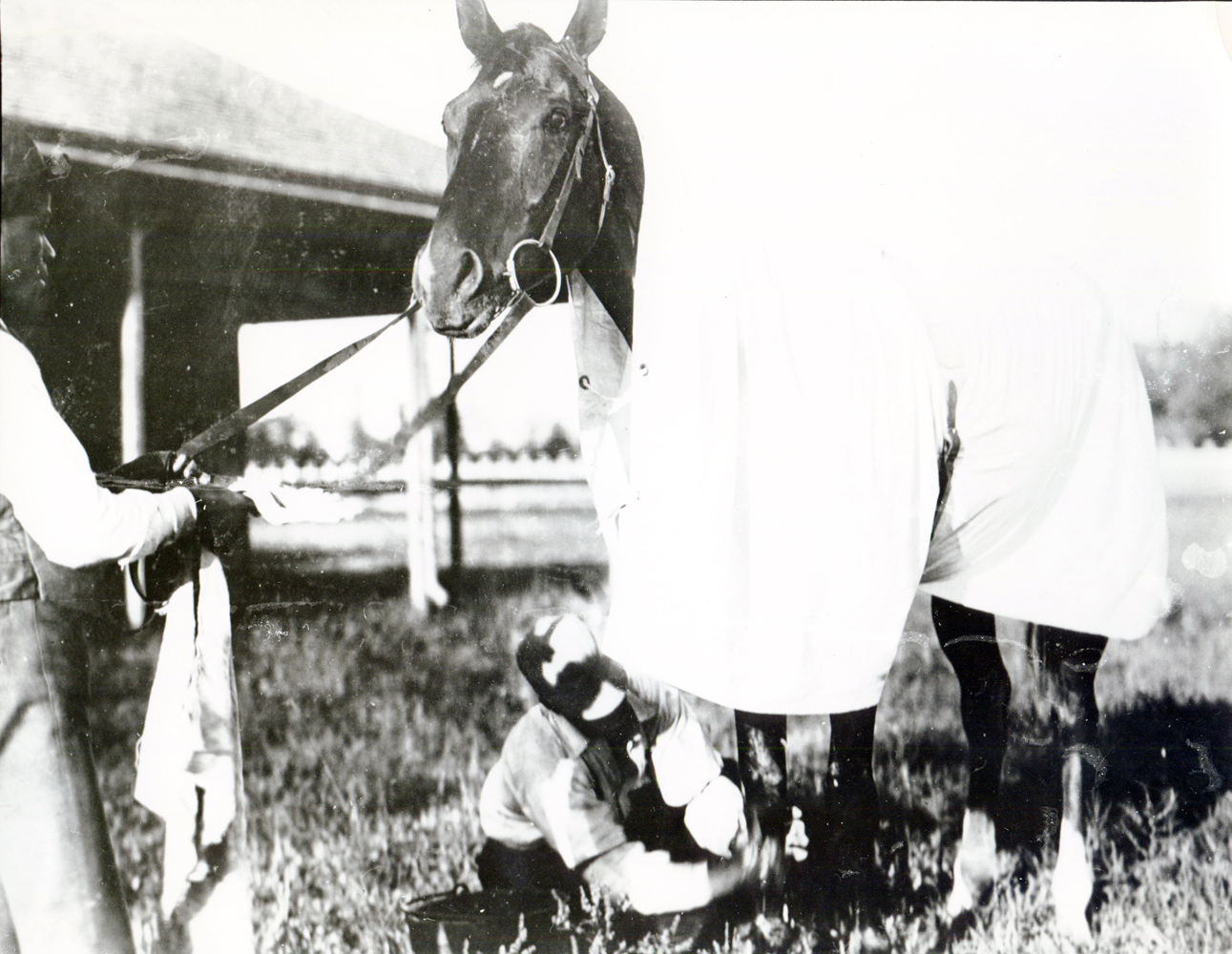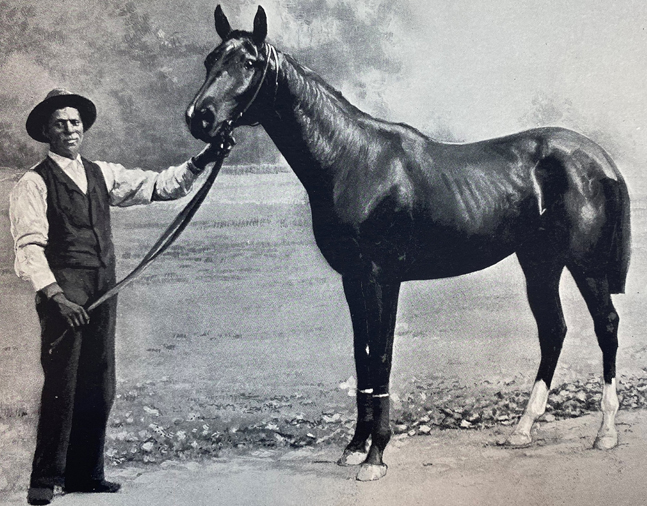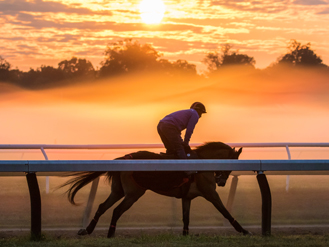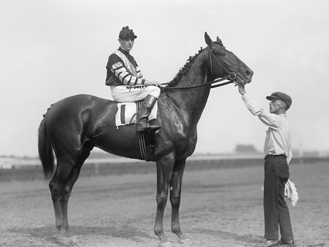Domino (KY)
Known as one of the great speed horses of the 19th century, Domino was bred by Maj. Barak G. Thomas at his Hira Villa Stud near Lexington, Kentucky. A dark bay, almost black son of Himyar out of the Enquirer mare Mannie Gray, Domino was purchased as a yearling for $3,000 by James R. Keene and Foxhall Keene and turned over to trainer William “Billy” Lakeland and jockey Fred Taral, who rode him in all but one of his 25 career starts.
Racing Record
25
Starts
| 1893 | 9 | 9 | 0 | 0 | $170790 $170,790 |
| 1894 | 8 | 6 | 0 | 1 | $19150 $19,150 |
| 1895 | 8 | 4 | 2 | 0 | $3610 $3,610 |
Biography
Known as one of the great speed horses of the 19th century, Domino was bred by Maj. Barak G. Thomas at his Hira Villa Stud near Lexington, Kentucky. A dark bay, almost black son of Himyar out of the Enquirer mare Mannie Gray, Domino was purchased as a yearling for $3,000 by James R. Keene and Foxhall Keene and turned over to trainer William “Billy” Lakeland and jockey Fred Taral, who rode him in all but one of his 25 career starts.
Domino despised Taral’s heavy whip and tried to bite the jockey at every opportunity. Later in Domino’s career the relationship between horse and jockey was so bad that a blanket had to be put over Domino’s head before Taral was able to climb aboard.
At the age of 2, in 1893, Domino won all nine of his starts and earned $170,790, which easily bested the record career mark of $139,917 established by Kingston, which was earned in 138 starts. Domino’s wins that year included the Great Eclipse Stakes, Futurity Stakes (the richest race of the year with a purse of $48,910, drawing 19 runners), Great American Stakes, Great Trial Stakes, Hyde Park Stakes, Matron Stakes, and Produce Stakes. In the Matron, at Morris Park, Domino set a new American record of 1:09 flat for six furlongs. Of the Futurity effort, Turf, Field and Farm reported: “Taral seemed to use superhuman efforts and finally landed Domino winner by a head.”
Known as “The Black Whirlwind” because of his dark coat, Domino began his 3-year-old campaign in 1894 with a victory over Belmont Stakes winner Henry of Navarre in the Withers Mile to stretch his win streak to 10. Domino won five of his next seven races, including a dead heat in a match race with Henry of Navarre before a crowd of 20,000 at Sheepshead Bay. Domino and Henry of Navarre met again three weeks after their dead heat. Henry of Navarre won by three-quarters of a length and Domino pulled up lame after the finish.
Along with his win in the Withers, Domino won the Flying Stakes (setting a track record under 130 pounds), Culver Stakes, Ocean Handicap, and Third Special to conclude his 3-year-old season with a record of 6-0-1 from eight starts and an additional $19,150 in earnings.
Domino returned to the races as a 4-year-old in 1895, winning the Coney Island Handicap and Sheepshead Bay Handicap. He also finished second in the Coney Island Fall Handicap under 133 pounds, while conceding 24 pounds to the winner, The Butterflies. A bad foot led Domino being retired late in 1895.
From 25 career starts, Domino posted a record of 19-2-1 and earnings of $193,550. His career earnings mark stood until Man o’ War surpassed it in 1920 and his juvenile season earnings of $170,790 remained the standard for 38 years until Top Flight came along in 1931.
In retirement at the Keene family’s Castleton Stud near Lexington, Domino was only able to produce 19 foals before he died unexpectedly of spinal meningitis in 1897. Of those 19 foals, eight became stakes winners, including Caps and Bells, the first American-bred to win the English Oaks, and Belmont Stakes winner Commando, a Hall of Fame member who in turn sired a number of top horses, including undefeated Hall of Famer Colin.
The marble headstone on Domino’s gravesite reads: “Here lies the fleetest runner the American turf has ever known, and one of the gamest and most genuine of horses.”
Achievements
Horse of the Year — 1893
Champion 2-Year-Old Male — 1893
Media
